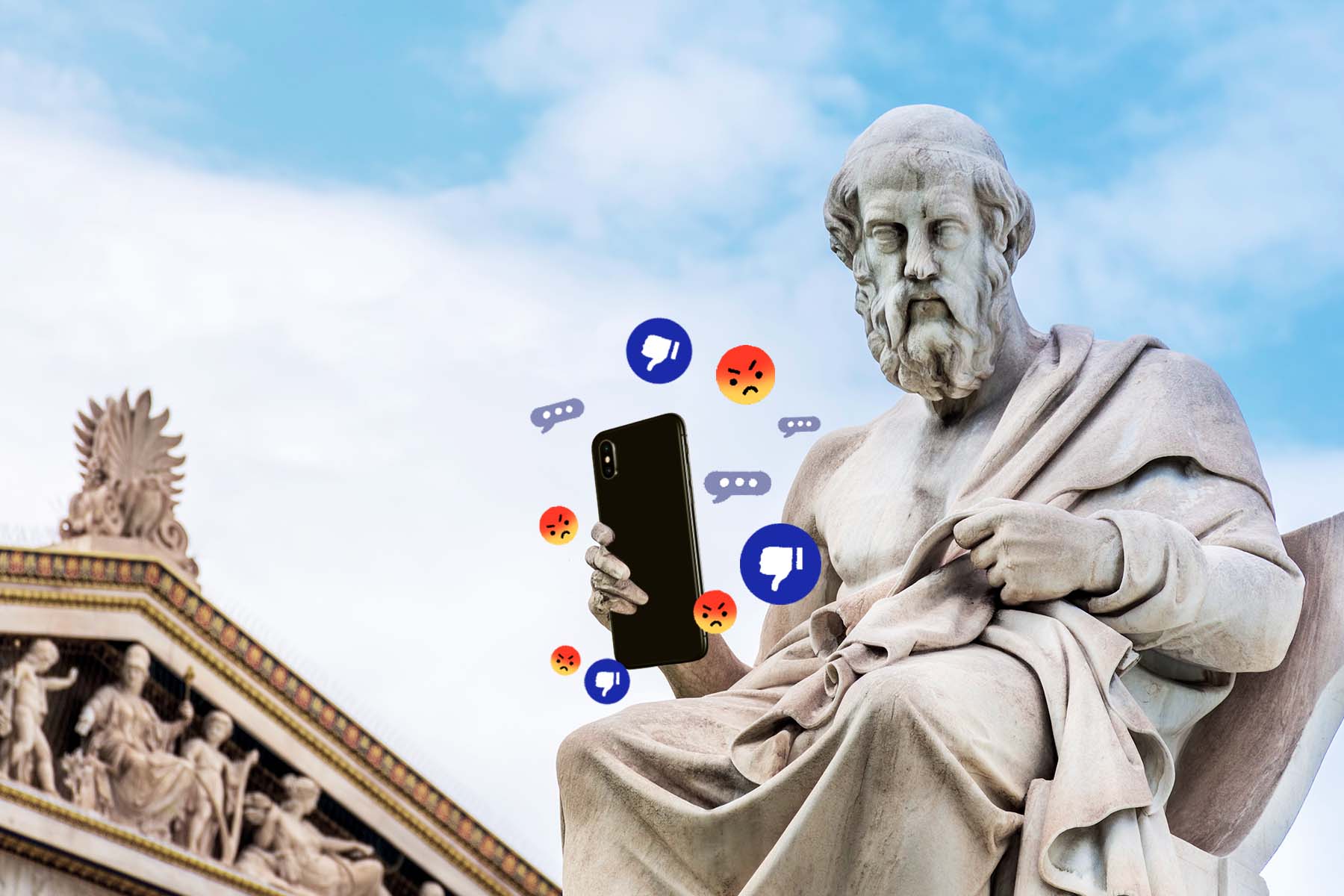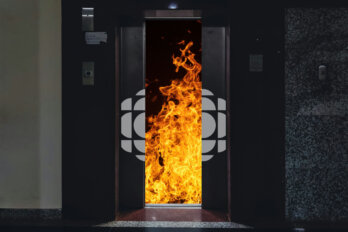An alien arriving on Earth in the year 2023 might believe social media was created solely for strangers to yell at each other. It has become unremarkable that, for example, an anodyne tweet by a woman who enjoys drinking coffee with her husband every morning would provoke outrage. “This is cute and all but did you think of all the people who wake up to work grueling hours, wake up on the streets, alone, or with chronic pain before posting this?” fumed one person. Or that expressing sadness over how difficult the early months of the pandemic were for new parents leads to a series of replies detailing how others “had it worse.” These exchanges are varied in subject, but what is consistent is how these banal discussions predictably devolve into a fight over moral superiority.
Look at any social media post that has more than a dozen responses; inevitably, one of them will attack the original post on the basis of some perceived moral transgression. Discussions of bike lanes deteriorate into fights about ableism; posts about the environmental impact of fast fashion unravel into accusations of elitism; the term “pregnant people” is somehow degrading to women. This can also take absurd forms. When an American writer tweeted that Canadian law dictates all burgers must be well done (not true but funny), the replies quickly turned rancid like room-temperature raw meat. All of a sudden, posters were deploying the suffering of Indigenous people and the victims of gun violence to dismiss the other country’s position on preparing ground beef.
So-called discussions like these no longer remain about an issue or a question at hand but become about whose moral position is the purest and most unimpeachably correct. (This is a shame, because the best way to prepare a burger is a topic worthy of introspection.) While this phenomenon is pervasive on social media—which is designed to amplify the most extreme and provocative takes, thereby rewarding users for posting them—it’s also omnipresent in politics, traditional media, and corporate spaces. In January 2022, REI, a retailer selling gear for outdoor activities, prefaced an anti-union statement with a land acknowledgement, wrapping an obvious act of corporate self-interest in the gauzy veil of inclusive language.
It turns out this phenomenon has a name: moral grandstanding. In their book Grandstanding: The Use and Abuse of Moral Talk, philosophers Justin Tosi and Brandon Warmke argue that we often raise issues of justice and equity not to advance meaningful social causes but to generate positive attention for ourselves by denigrating others. Sometimes this involves piling on—joining a Greek chorus of reproachful replies without contributing anything new—or exaggerating one’s moral outrage for dramatic value. In doing so, we dilute the impact of critical ethical issues and foreclose the possibility of productive public discourse. The goal is not to understand but to win. Grandstanding is not just about demonstrating that your position is right but that your opponent’s position—and, by extension, their moral character—is wrong. What was the original point? Who cares: you are ethically bankrupt and here’s why.
There are endless ways to be wrong in the modern world. In The Good Place, a sitcom about the afterlife, the characters uncover the divine logic that determines who goes to heaven or hell: a points system that tabulates the impact of every decision made over a lifetime. For the past 500 years, every human on Earth has ended up in hell, in part because we have created a deeply unjust society that renders ethical decision making impossible, because every minor decision impacts other people in unknowable ways. Tearing an ad for allergy medicine out of a magazine, for instance, means someone else might never see it and suffer from untreated allergies forever. Online discussions feel like watching the logic of this points system play out in real time: reach far enough in any direction and you can always find something to criticize and a seemingly righteous sword to wield. And reflexive responses rooted in envy or disdain—I wish I had hours to drink coffee with my spouse in the morning—are suddenly reframed along some moral line to show how virtuous we are. Some of us get up and go to work every day!
Tosi and Warmke argue that grandstanding contributes to the increasingly divisive political spectrum, with real-world implications that are far more concerning than a bunch of chronically online social media users yelling at each other about burgers. North Americans are more polarized than ever, with less and less capacity to find common ground or shared humanity across political parties. And politically charged moral arguments can engender real harm against marginalized groups in the real world, as when the spectre of child abuse is invoked to justify the harassment and violence targeting LGBTQ2S+ communities. This allows moral grandstanding to be weaponized as rhetorical cover for cruelty and harassment; no reasonable person can conclude that yelling about drag shows outside a public library makes children safer in any way. These real-world actions are a manifestation of moralized outrage that has become routine online, and key messages have gained a degree of credibility through sheer repetition.
The COVID-19 pandemic only made things worse, as many of us entirely substituted real-world interactions for digital ones. The pandemic also ratcheted up the perceived moral stakes of nearly every decision—whether to send your child to school, go to the grocery store, fly on an airplane—and gave us more opportunities than ever to criticize one another’s behaviour. Lines were drawn everywhere. To cross them meant risking public ridicule and shaming. It felt productive, even necessary, to point out transgressions. Doing so permitted us to exercise a tiny measure of autonomy while enduring a crisis that reminded us daily of our vulnerability and powerlessness.
Moralizing is also a way of expressing our dismay at the vast, cruel machinations of society. Like the afterlife points system, we can tabulate the harms of each tiny decision, but we can’t escape our own culpability. Every problem—the climate crisis, the collapsing health care system, the existence of billionaires—seems too big to solve, so we point fingers instead.
As cathartic as venting one’s outrage can be in the moment, it’s clear that moral grandstanding accomplishes very little beyond the fleeting satisfaction that it brings. Shaming people doesn’t seem to change their behaviour, and invoking mass shooting victims in an argument about hamburgers doesn’t move the needle on gun control. Social change doesn’t come from posting but from purposeful collective action: organizing, voting, protesting. At worst, the catharsis of grandstanding deludes us into thinking that virtuous online posturing is a meaningful form of solidarity and not a fruitless, ego-driven impulse. Tosi and Warmke argue that the purpose of recognizing moral grandstanding isn’t to get other people to knock it off; it’s to stop doing it yourself.




